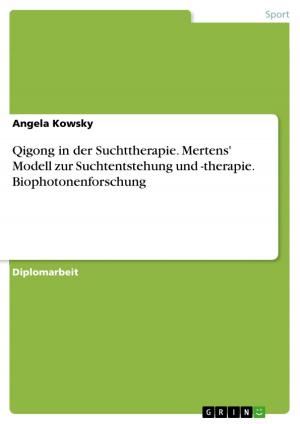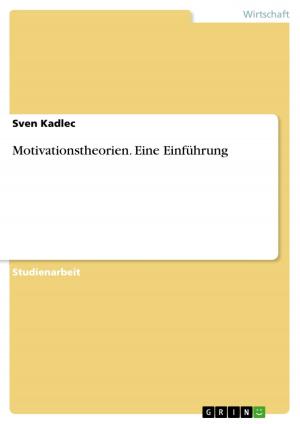The Role of Hydropower for Regional Integration. The Case of the Grand Ethiopian Renaissance Dam
Nonfiction, Social & Cultural Studies, Political Science, International, International Relations| Author: | Getahun Kumie | ISBN: | 9783668358225 |
| Publisher: | GRIN Verlag | Publication: | December 7, 2016 |
| Imprint: | GRIN Verlag | Language: | English |
| Author: | Getahun Kumie |
| ISBN: | 9783668358225 |
| Publisher: | GRIN Verlag |
| Publication: | December 7, 2016 |
| Imprint: | GRIN Verlag |
| Language: | English |
Master's Thesis from the year 2015 in the subject Politics - International Politics - Region: Africa, grade: Very Good, Addis Ababa University (Department of Politcal Science and International Relations), course: International Relations, language: English, abstract: The commencement of Grand Ethiopian Renaissance Dam (GERD) on April 2, 2011 dictates significant change on the ground which challenges the hydro political status quo of the Nile basin. The construction of the dam facilitates discussion among states of the region over the impacts of the dam and the possibilities of future utilization of the River. Thus, this study attempted to investigate the role of GERD for regional integration. The researcher attempted to examine the role of GERD for regional integration in the Horn of Africa in view of challenges and prospects ahead. In addition, the study tried to analyze the role of GERD for maintaining peace and stability in the region and also its implications for Ethiopia. Methodologically, the research is based on a qualitative research approach. The study has used secondary sources. It also used primary data through in-depth interview with officials and experts from relevant institutions and authorities. The available sources are analyzed by using descriptive and explanatory research approaches. The major findings of the study reveal that GERD will be a catalyst for regional integration in the Horn of Africa through providing energy interconnection and creating economic interdependence among states of the region. The findings in this paper also suggested that GERD will be a catalyst for maintaining peace and stability in the region by enhancing economic interdependence and cooperative utilization of Nile water resources. The findings also indicated that the construction of GERD has social, economic and political implications to Ethiopia. The study highlighted the prospects of GERD for regional integration. Among others, Sudanese support for the dam; the signing of declaration of principles of GERD and the intensification of infrastructural interconnections among states of the region are some of them. Lastly, the study highlighted challenges ahead on GERD for regional integration. Among these mistrust among states of the region; the absence broader regulatory framework for hydropower trading; the nature of political regimes, and financial constraints for constructing the dam and also for establishing transmission grids are the most prominent ones. Generally, the findings of the study leads to the overall conclusion that GERD will foster regional integration through providing energy interconnection and economic interdependence among states of the region.
Master's Thesis from the year 2015 in the subject Politics - International Politics - Region: Africa, grade: Very Good, Addis Ababa University (Department of Politcal Science and International Relations), course: International Relations, language: English, abstract: The commencement of Grand Ethiopian Renaissance Dam (GERD) on April 2, 2011 dictates significant change on the ground which challenges the hydro political status quo of the Nile basin. The construction of the dam facilitates discussion among states of the region over the impacts of the dam and the possibilities of future utilization of the River. Thus, this study attempted to investigate the role of GERD for regional integration. The researcher attempted to examine the role of GERD for regional integration in the Horn of Africa in view of challenges and prospects ahead. In addition, the study tried to analyze the role of GERD for maintaining peace and stability in the region and also its implications for Ethiopia. Methodologically, the research is based on a qualitative research approach. The study has used secondary sources. It also used primary data through in-depth interview with officials and experts from relevant institutions and authorities. The available sources are analyzed by using descriptive and explanatory research approaches. The major findings of the study reveal that GERD will be a catalyst for regional integration in the Horn of Africa through providing energy interconnection and creating economic interdependence among states of the region. The findings in this paper also suggested that GERD will be a catalyst for maintaining peace and stability in the region by enhancing economic interdependence and cooperative utilization of Nile water resources. The findings also indicated that the construction of GERD has social, economic and political implications to Ethiopia. The study highlighted the prospects of GERD for regional integration. Among others, Sudanese support for the dam; the signing of declaration of principles of GERD and the intensification of infrastructural interconnections among states of the region are some of them. Lastly, the study highlighted challenges ahead on GERD for regional integration. Among these mistrust among states of the region; the absence broader regulatory framework for hydropower trading; the nature of political regimes, and financial constraints for constructing the dam and also for establishing transmission grids are the most prominent ones. Generally, the findings of the study leads to the overall conclusion that GERD will foster regional integration through providing energy interconnection and economic interdependence among states of the region.















